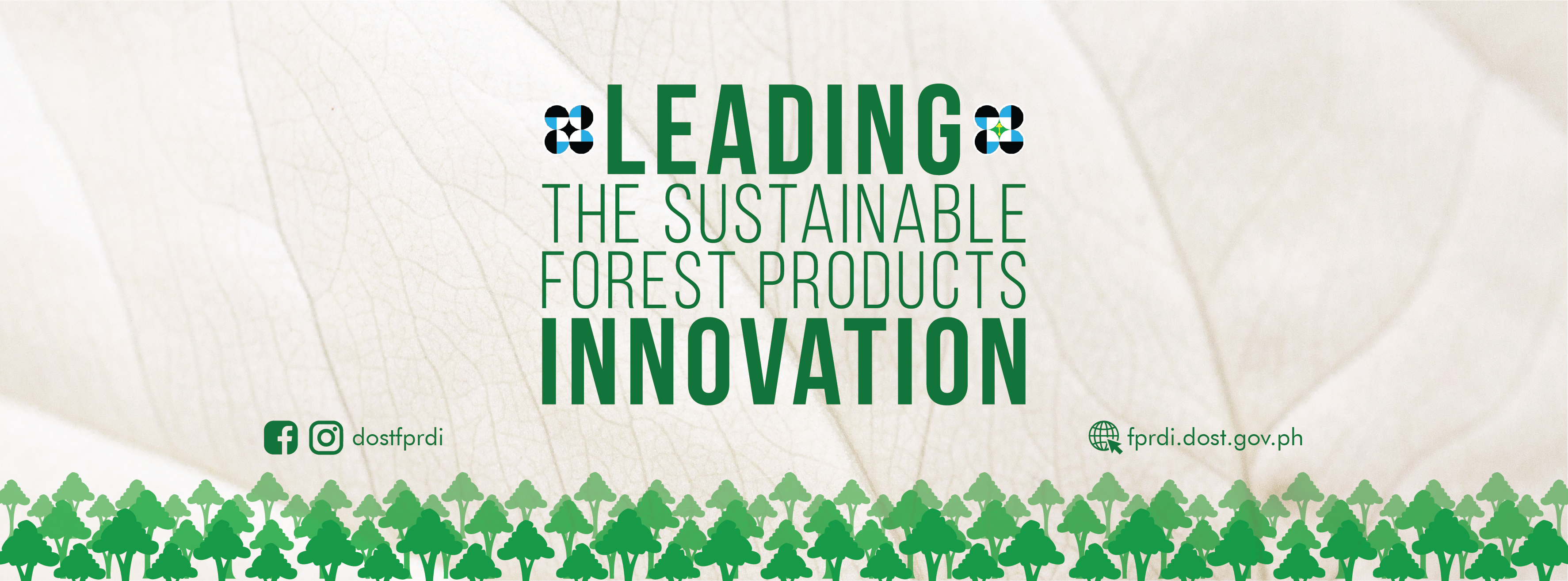FPRDI studies possible materials for wine barrels
- Details
FPRDI studies possible materials for wine barrels
September 1, 2013
Can the wood of fruit and industrial tree plantation species be used for making wine barrels?
A recent study at FPRDI indicates so. Ms. Simplicia B. Katigbak, Project Leader, said: “Our research team tested whether or not three industrial tree plantation species and two fruit tree species are suitable for making wooden barrels for aging fruit wine.
The plantation trees were big-leafed mahogany (Swietenia macrophylla), river red gum (Eucalyptus camaldulensis), and mangium (Acacia mangium), while the native trees were santol (Sandoricum koetjape) ans Indian mango (Mangifera indica).
FPRDI-ARMM collaboration seen
- Details
FPRDI-ARMM collaboration seen
August 27, 2013
The Forest Products Research and Development Institute (FPRDI) is set to assist the local government of the Autonomous Region in Muslim Mindanao (ARMM) in beefing up the region’s livelihood options.
This was firmed up after the discussions between FPRDI representatives Mildred M. Fidel, Chief of the Technical Services Division, and Maria C. Reyes of the Business Development and Intellectual Property Section, and ARMM’s Executive Secretary Atty. Laisa M. Alamya and Manila Liaison Office Director Mr. Jolly S. Lais on 26 June and 07 August 2013.
Bamboo Flattening Machine wins PARRFI R&D Award
- Details
Bamboo Flattening Machine wins PARRFI R&D Award
August 14, 2013
FPRDI’s Engr. Dante Pulmano receives a Plaque of Recognition from UP Los Banos Vice Chancellor Dr. Enrique Tolentino for leading the team that developed the Bamboo Flattening Machine, the technology that won this year’s Philippine Agriculture and Resources Research Foundation, Inc. (PARRFI) R&D Award (Development Category).
The award was given last 2 August 2013 during the Closing Ceremonies of the 2013 “Siyensaya”, the Los Banos Science Community Foundation, Inc’s. (LBSCFI) celebration of the National Science and Technology Week.










